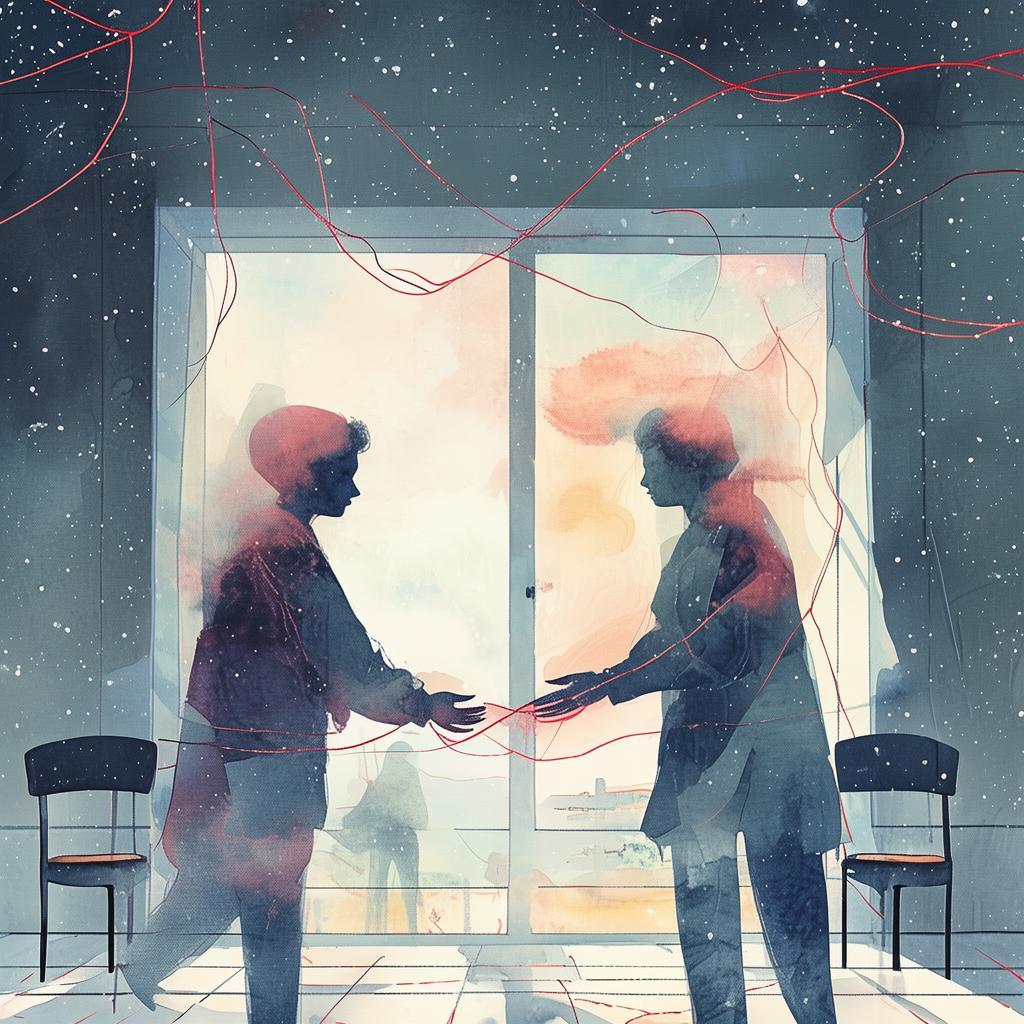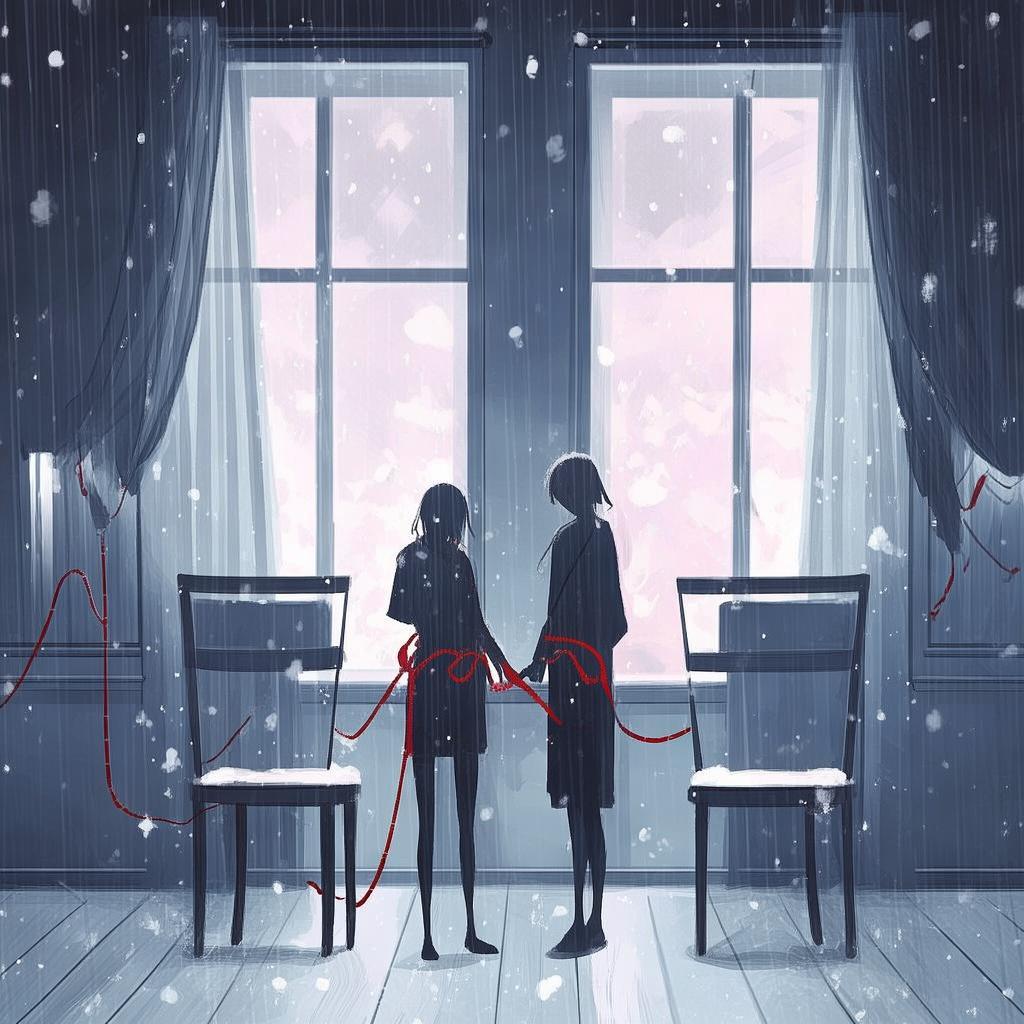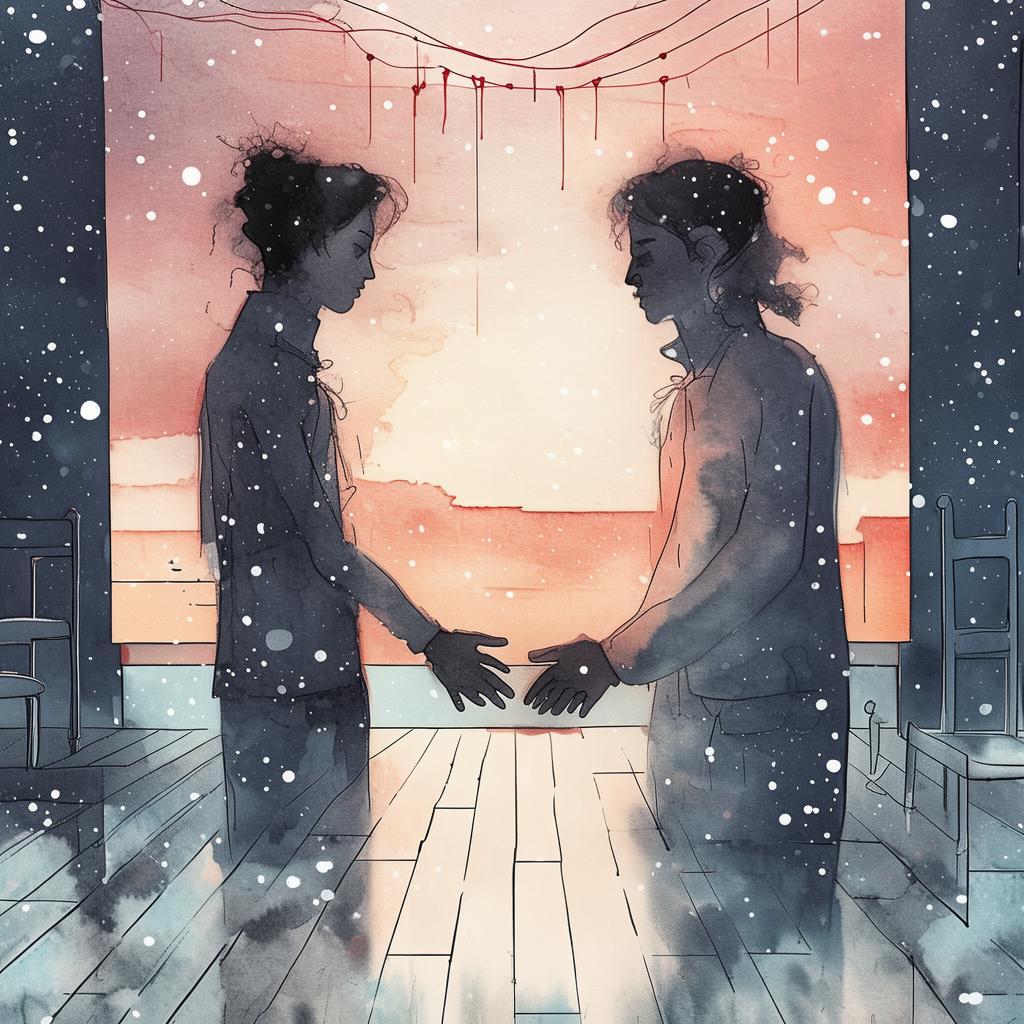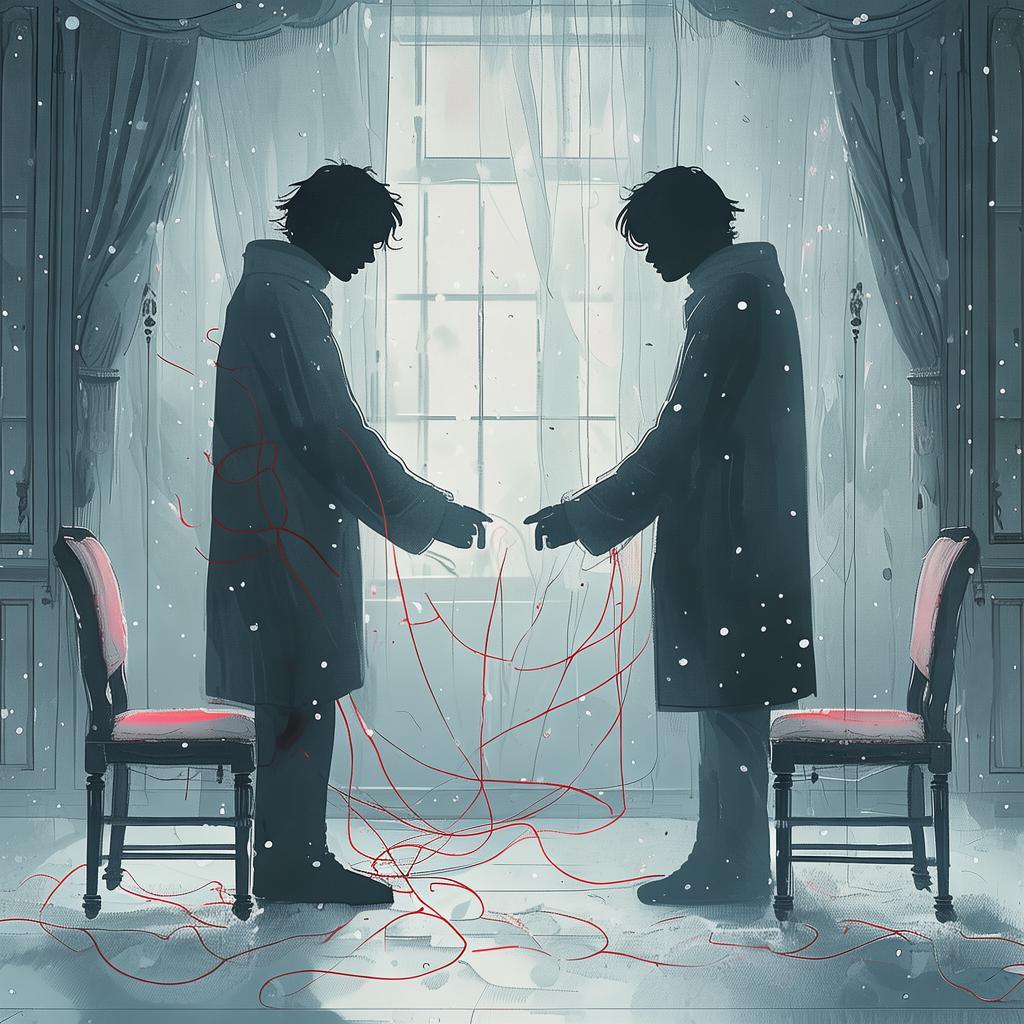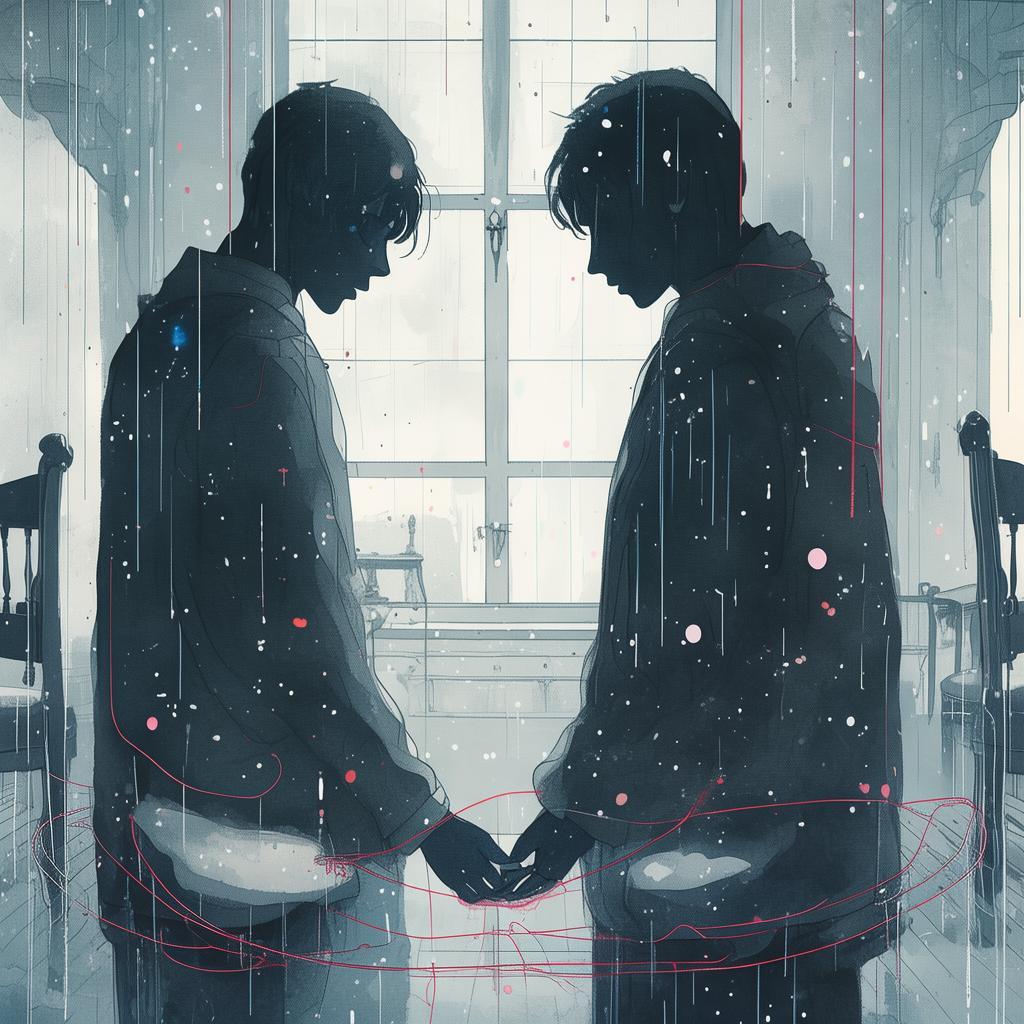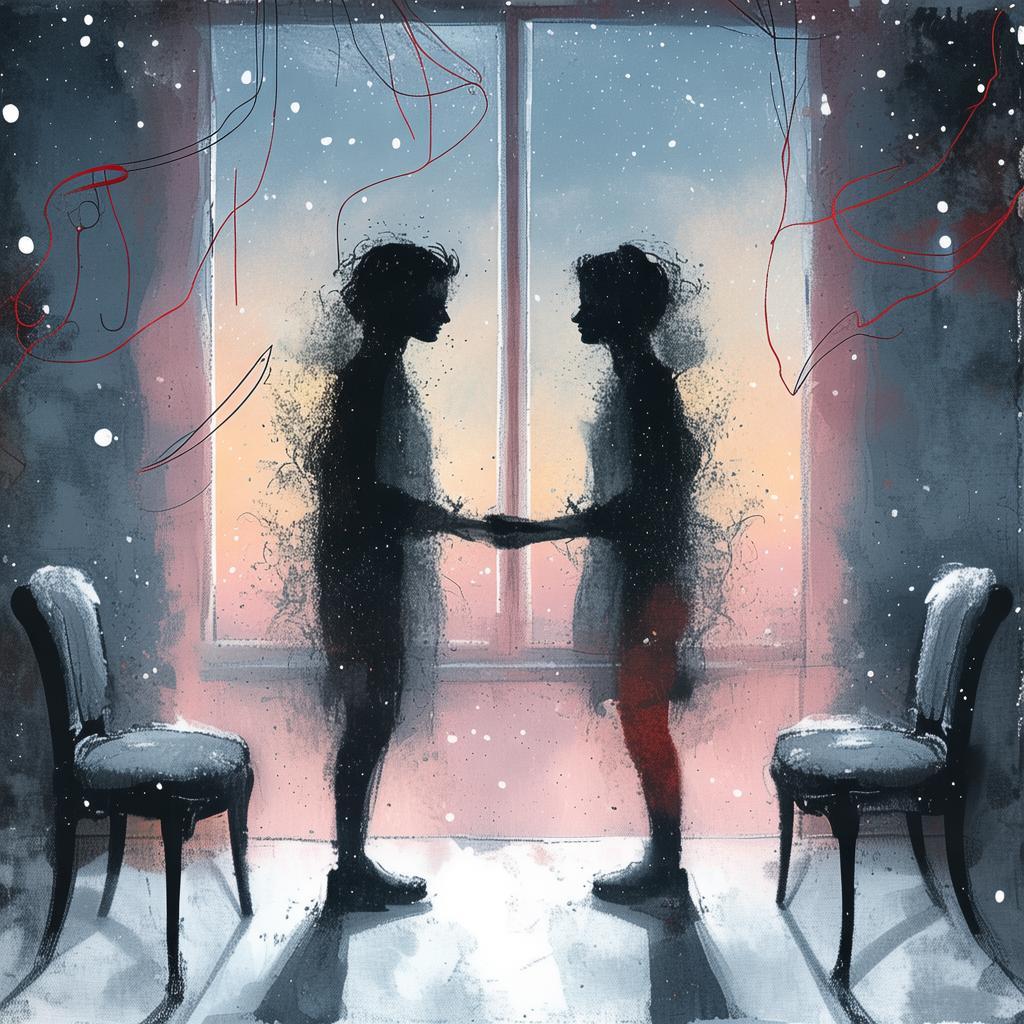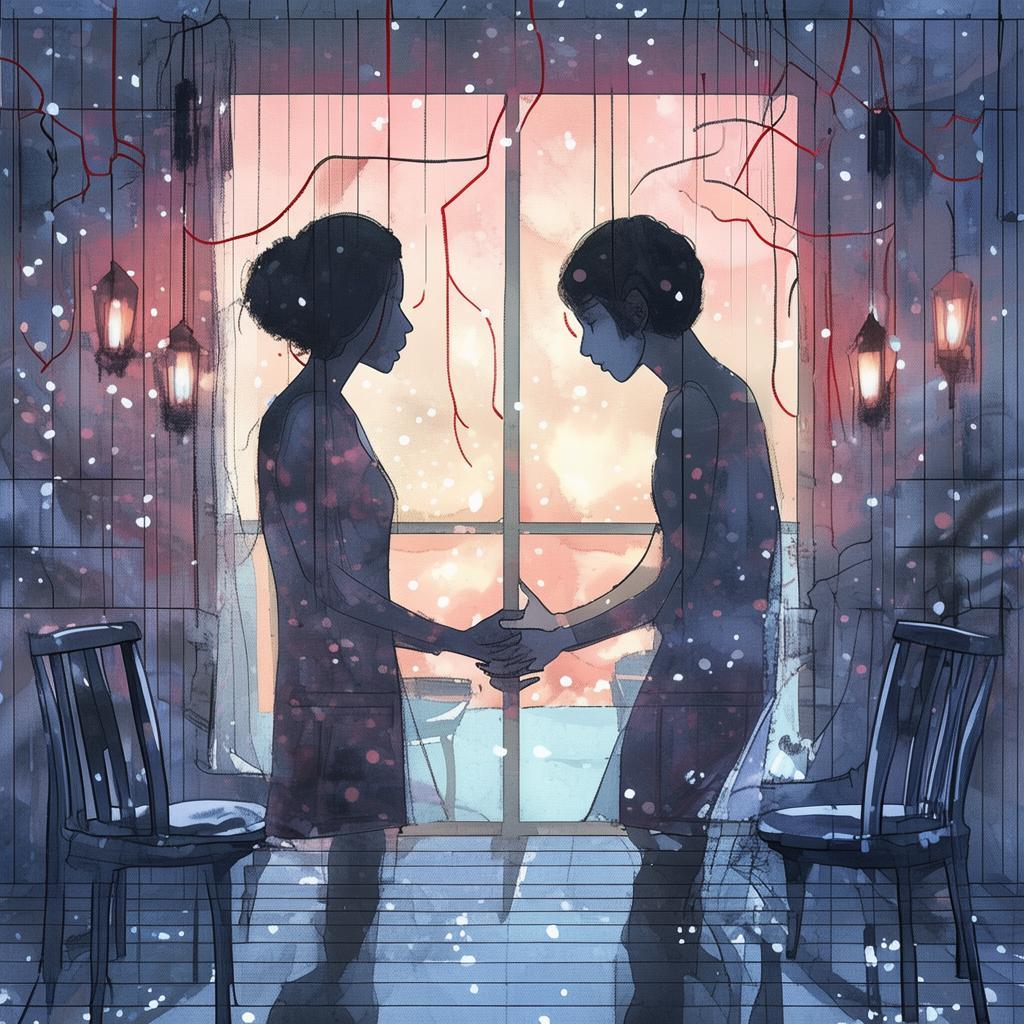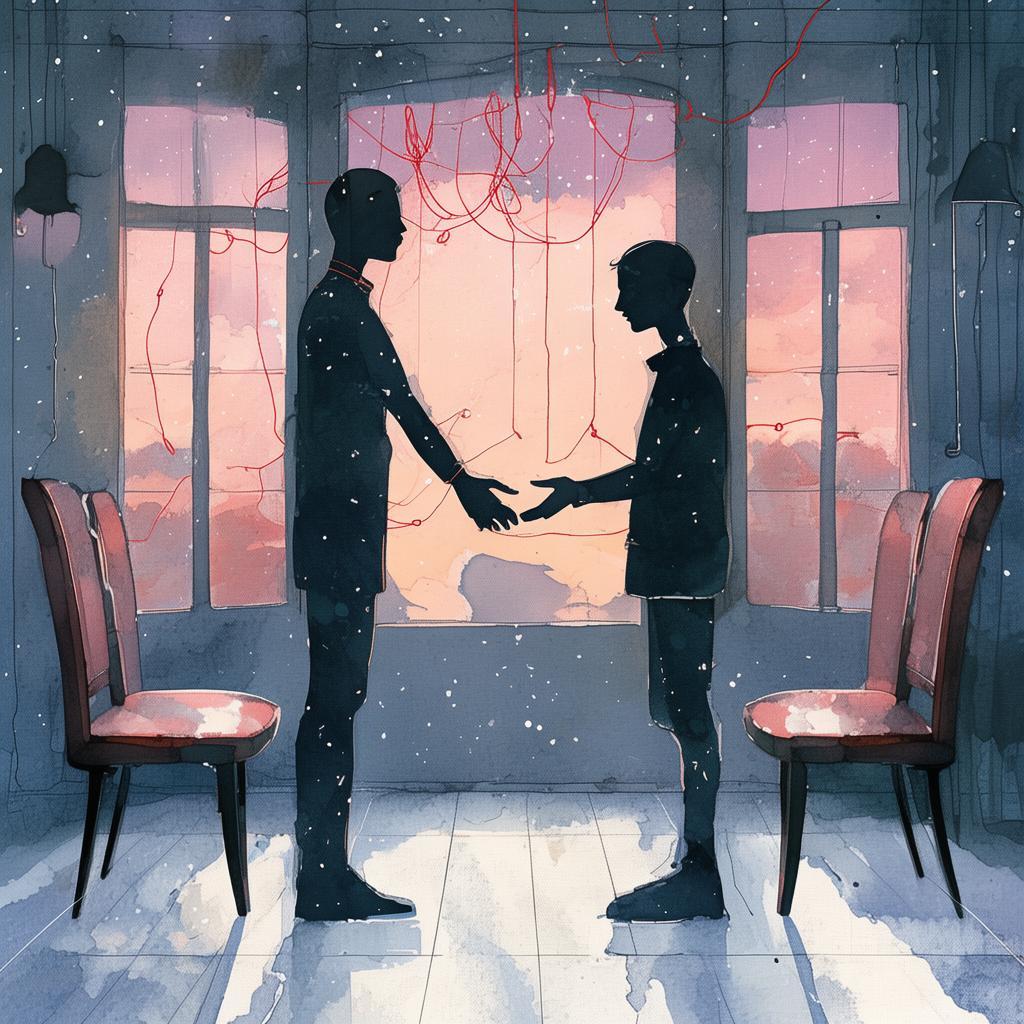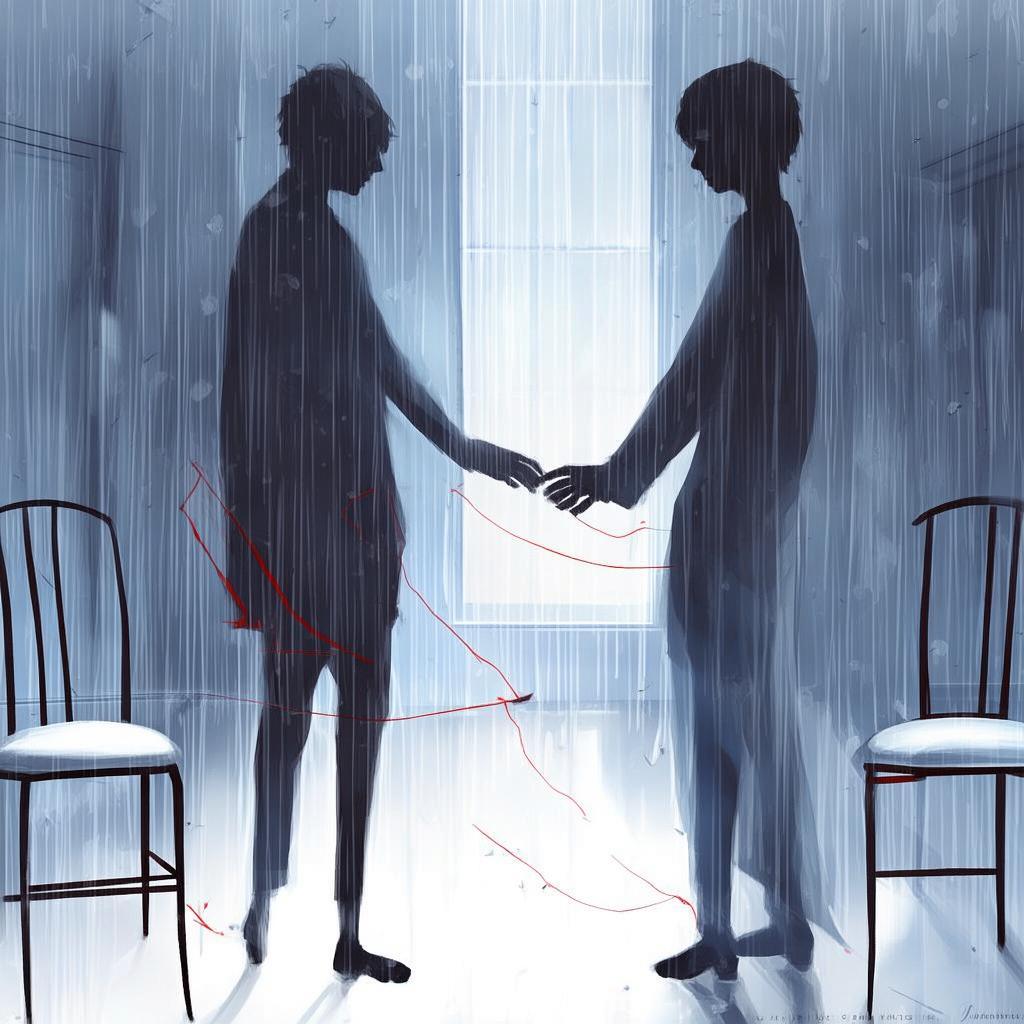Twisted Reflections: A Comedy of Love and Error
The sun was setting over the bustling city of Neo-Ethens, casting a golden hue over the skyline. Inside the dimly lit theater, the audience was on the edge of their seats, their eyes fixed on the stage where the comedy of errors was about to unfold in a new and unexpected way.
Eros, the younger twin, was a charming rogue, with a heart as unpredictable as his laughter. His identical twin, Heracles, was the stoic, responsible brother, whose life was a series of calculated moves. They were both actors in a play that was more than just entertainment—it was a reflection of their own lives.
The stage was set, and the play began. The actors were in full costume, their lines delivered with practiced flair. But as the story unfolded, the lines between reality and performance began to blur. Eros and Heracles found themselves not just on stage, but in the lives of the characters they portrayed.
The plot thickened when it was revealed that the twins were not just actors, but also the sons of a wealthy merchant who had been separated at birth. The twist was that their mother had been a courtesan, and their father had been a prince, his royal bloodline hidden from the world.
As the story progressed, Eros and Heracles were drawn into a love triangle with a woman who was both a princess and a courtesan. Their identities, both real and fictional, became entangled in a complex web of desire, deceit, and destiny.
Eros, with his free-spirited nature, found himself falling for the princess, whose grace and intelligence captivated him. Heracles, on the other hand, was torn between his affection for the courtesan, whose wit and passion resonated with him, and his sense of duty to the princess, who was his legitimate claim to the throne.
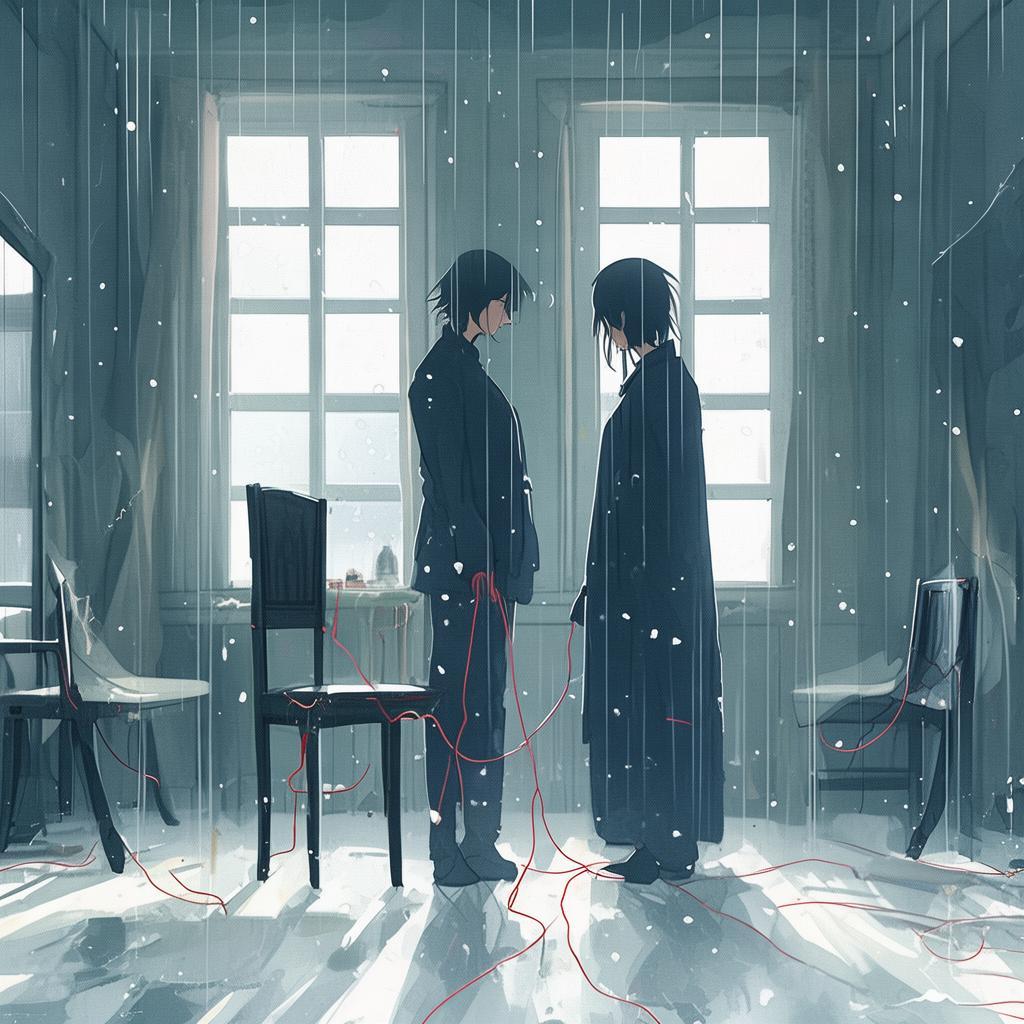
The play reached its climax when it was discovered that the twins were not the only ones with hidden identities. The princess and the courtesan were also twins, separated at birth by a tragic twist of fate. The revelation forced Eros and Heracles to confront the truth about their own lives and the lives of the women they loved.
In a dramatic twist, the twins discovered that their real parents had been in love, but their royal status had forced them apart. The revelation brought them closer together, as they realized that their shared past was the key to their future.
As the play reached its conclusion, the stage became a mirror to the audience's own lives. The comedy of errors had become a love story, one that showed that even in a world where identities are intermingled, love can find a way to shine through.
Eros, with his heart now clear, chose the courtesan, whose love was as pure as it was passionate. Heracles, understanding the depth of his feelings for the princess, chose to step aside, allowing his brother to claim his happiness.
The play ended with a standing ovation, the audience reflecting on the story of love and loss, identity and belonging. Eros and Heracles, now united in their quest for love, stepped off the stage, their lives forever changed by the comedy of errors that had become a love story in the newer world.
As the two men walked away from the theater, the city lights of Neo-Ethens seemed to glow brighter. They had found not just love, but a new understanding of themselves and each other. The comedy of errors had indeed become a comedy of love, a love story that would be remembered for generations to come.
✨ Original Statement ✨
All articles published on this website (including but not limited to text, images, videos, and other content) are original or authorized for reposting and are protected by relevant laws. Without the explicit written permission of this website, no individual or organization may copy, modify, repost, or use the content for commercial purposes.
If you need to quote or cooperate, please contact this site for authorization. We reserve the right to pursue legal responsibility for any unauthorized use.
Hereby declared.
